Pre SIHH 2012 – The new Lange und Söhne Datograph Auf/Ab

Lange und Söhne call it the new benchmark in chronograph design and we think they are absolutely right. The new Datograph Auf/Ab sets the bar at a new level and the improvements go beyond adding a power reserve indicator.
According to many collectors the normal Datograph was already one of the most desirable chronographs ever made, only surpassed by it’s bigger brother the Lange und Söhne Double Split. Will the new Datograph Auf/Ab bring a change in that hierarchy?
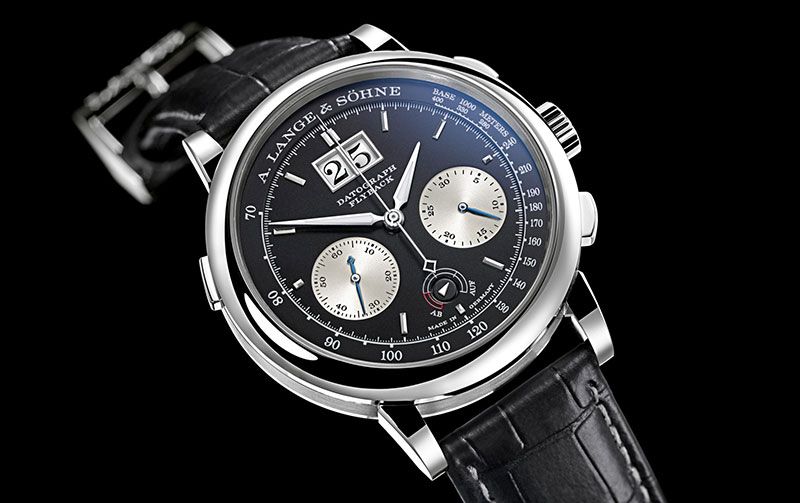
Let’s look at what’s been changed/improved.
First of all the case size has increased from 39 mm to 41 mm. Something that might seem like ‘almost nothing’ is a big change for Lange und Söhne because they usually keep diameters at a moderate, almost old fashioned, size of less than 40 mm. While we at Monochrome prefer such ideas about the diameter of a watch, many watch aficionados usually don’t. I say ‘usually’ because I’ve never heard any complaints about the diameter of the Datograph (or Lange 1), not even from the most hardcore Panerai fan. It looks like Lange und Söhne is the exception. Still I believe most collectors won’t mind that Lange und Söhne decided to increase the diameter by 2 millimeter.
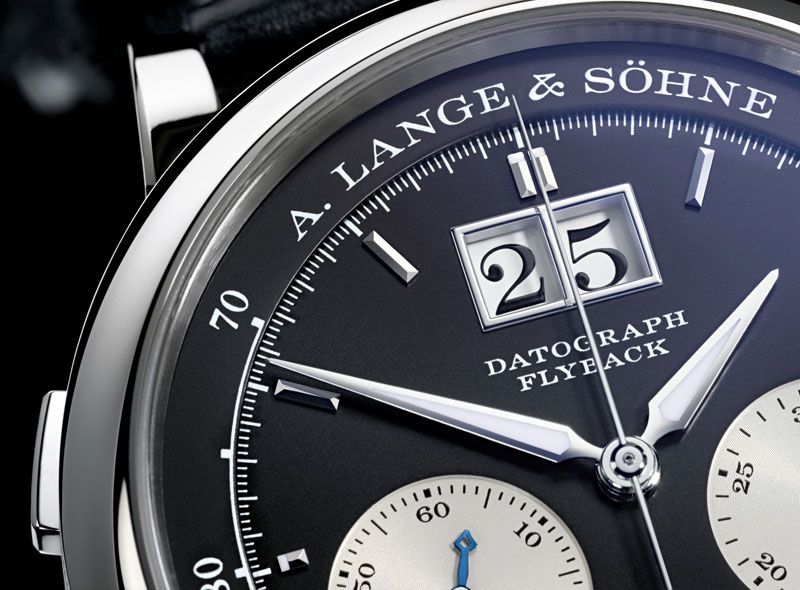
Another change, which is related to the increased diameter, is the slightly larger date aperture. Lange und Söhne wanted to keep the proportions the same as on the Datograph, so they increased the date aperture with 4%. That’s what I call attention for detail!
On the dial we can see another change, which is the absence of the Roman numerals II, VI, and X. Since the ‘Saxonia family’ got a small make-over last year, the new stick markers on the dial of the Datograph Auf/Ab is now coherent with the rest of the family.
The change that gave the new Datograph its name is the power reserve indicator, which might refer to the old 1815 Auf/Ab. The power reserve indicator is positioned at 6 o’clock and is a very pleasant function on a manually wound watch. Not visible on the dial, yet another improvement, is that the Datograph Auf/Ab now has 60 hours of autonomy when fully wound. This means an increased power reserve of 24 extra hours, compared to the normal Datograph. Only when the hand enters the red zone on the third day will it be necessary to supply the movement with new energy. The 24 extra power-reserve hours were achieved mainly with a larger mainspring barrel.
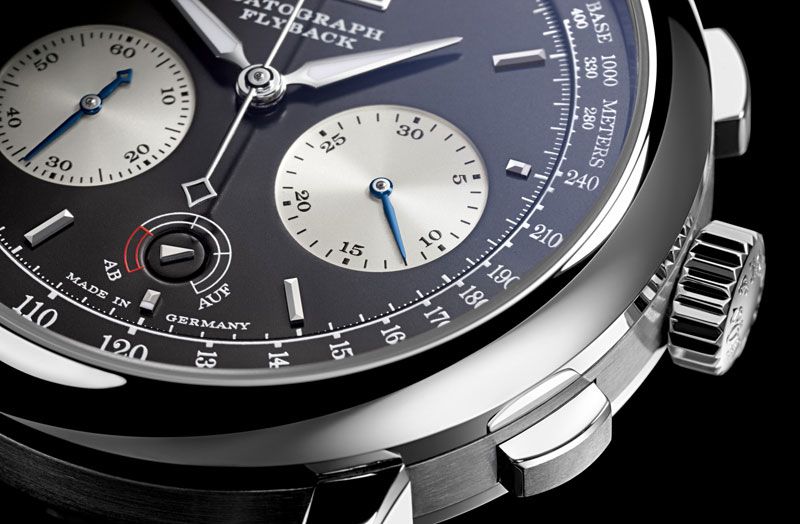
When it was first presented in 1999, the A. Lange & Söhne Datograph attracted attention for its classic column-wheel movement with a precisely jumping minute counter and flyback function. This jumping minute counter makes it easy to read the elapsed time, when the chronograph is stopped.
This mechanism was used in earlier times, especially in pocket watches and high-quality wristwatches. Lange und Söhne has improved this mechanism and was granted a patent for an adjustable operating lever. The video below shows how it works.
The Datograph Auf/Ab aso features a Flyback function, which allows the chronograph to be instantaneously reset to zero during an ongoing measurement, simply by pressing a pusher. Originating from the early days of aviation, this mechanism makes it possible to perform instantly consecutive time measurements by combining three steps – stop, reset, restart – into one: one single push of a button will stop and reset the Datograph Auf/Ab in the middle of an ongoing time measurement. When the button is released, a new time measurement is initiated immediately.
Technically it’s all mighty impressive! Actually like we are used to from this beautiful German watch manufacture. But the question whether the new Datograph Auf/Ab will distrub the reign of the Double Split, might boil down to how collectors value the design of the movement.
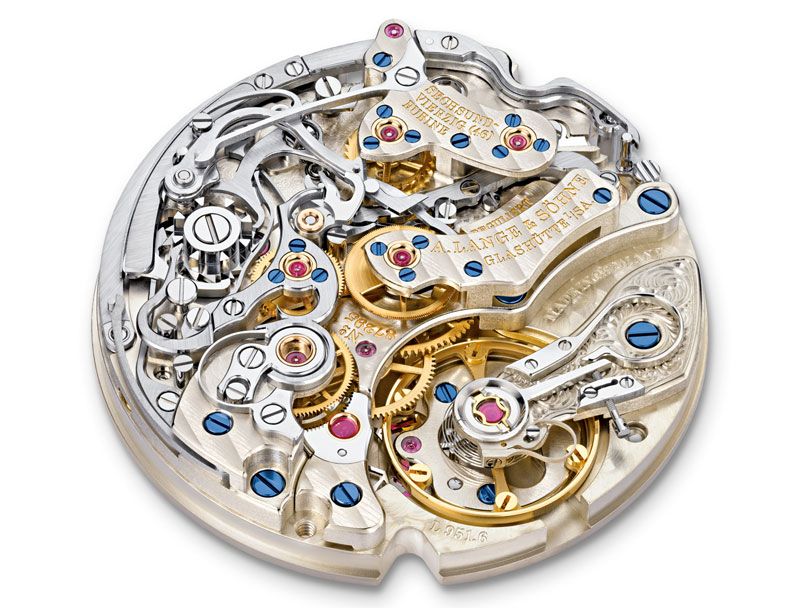
The movement, caliber L951.6, which can be seen trough the sapphire case back, has a classical frequency of 18,000 semi-oscillations per hour. This assures optimised rate values. It is powered by a balance spring, also developed and crafted on site by Lange. The manually wound movement is crafted to the Lange quality standards and is decorated and assembled by hand. The plates and bridges are made of untreated German silver and, typical for Lange und Söhne, the balance cock is engraved by hand.
Also beautifully visible is the column wheel that controls the chronograph functions, four screwed gold chatons and the levers of the flyback function. A true visual treat!
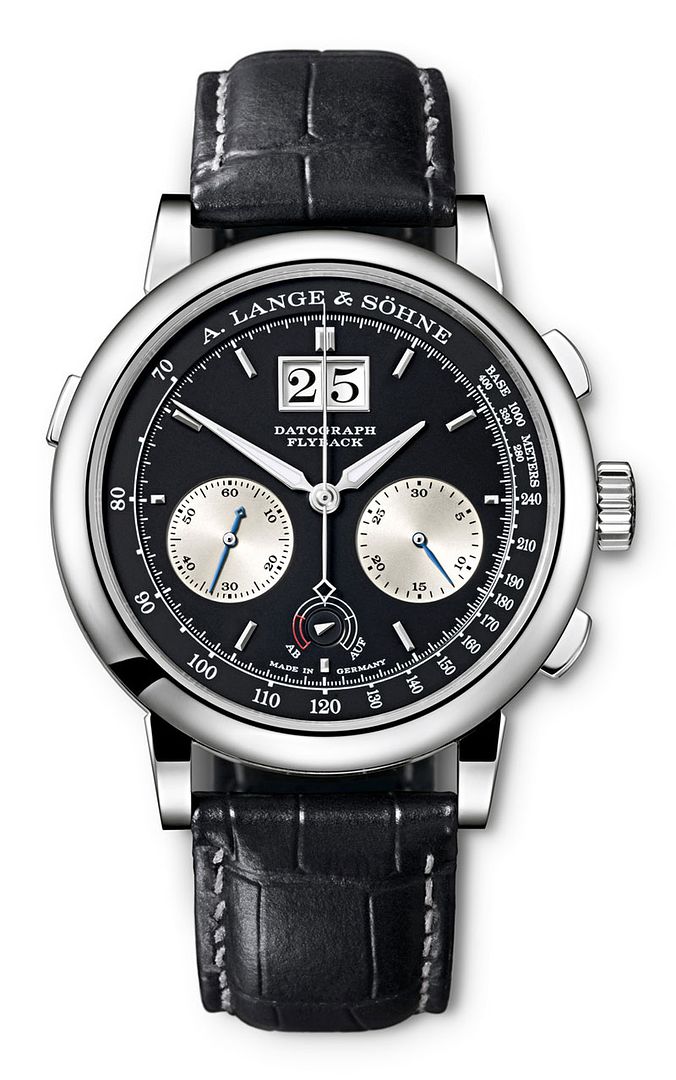
Lange manufacture calibre L951.6, ?
- Movement parts: 451
- ?Jewels: 46
- ?Screwed gold chatons: 4
- Escapement: Lever escapement
- Oscillation system: Shock-resistant balance with eccentric poising weights; superior-quality balance spring manufactured in-house, frequency 18,000 semi-oscillations per hour, precision beat adjustment system with lateral setscrew and whiplash spring
- Power reserve: 60 hours when fully wound
- Functions: Time indicated in hours, minutes, and subsidiary seconds with stop seconds; flyback chronograph with precisely jumping; power-reserve indicator; outsize date
Operating elements: Crown for winding the watch and setting the time, two pushers for operating the chronograph, one pusher for rapid correction of the outsize date
Case dimensions: Diameter: 41.0 millimetres; height: 13.1 millimetres
Movement dimensions: Diameter: 30.6 millimetres; height: 7.9 millimetres?
Case: Platinum
Dial: Solid silver, black
Hands: Rhodiumed gold, steel
?For more information, visit the Lange und Söhne website or their official Facebook page.

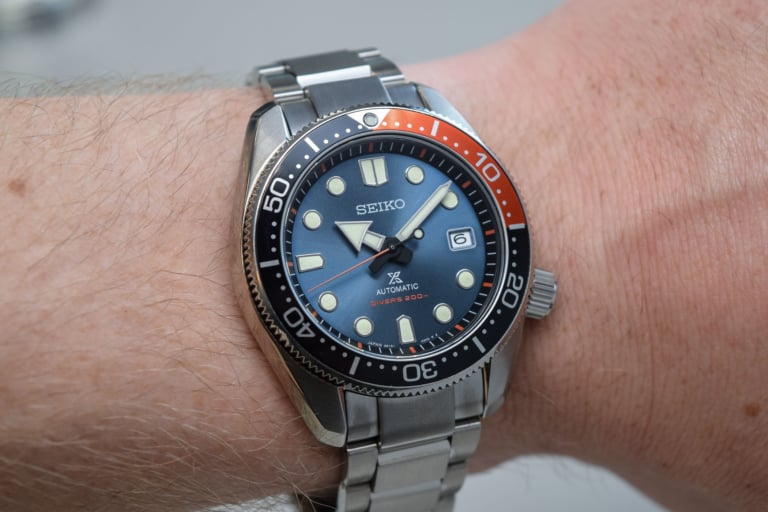
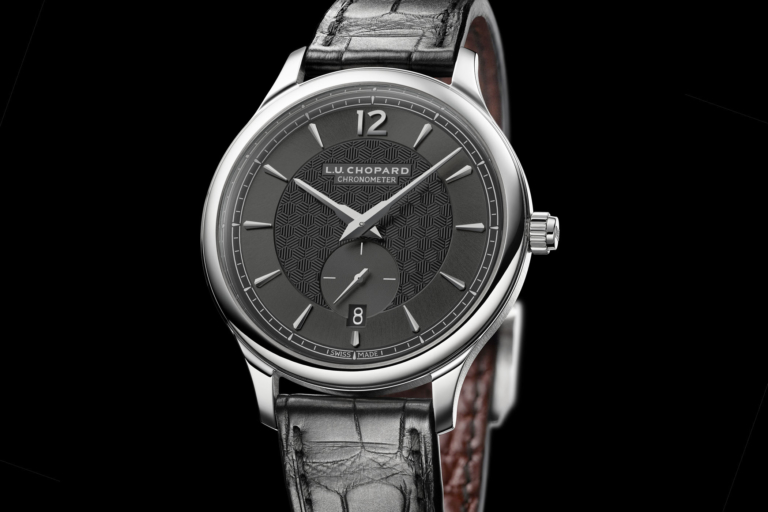
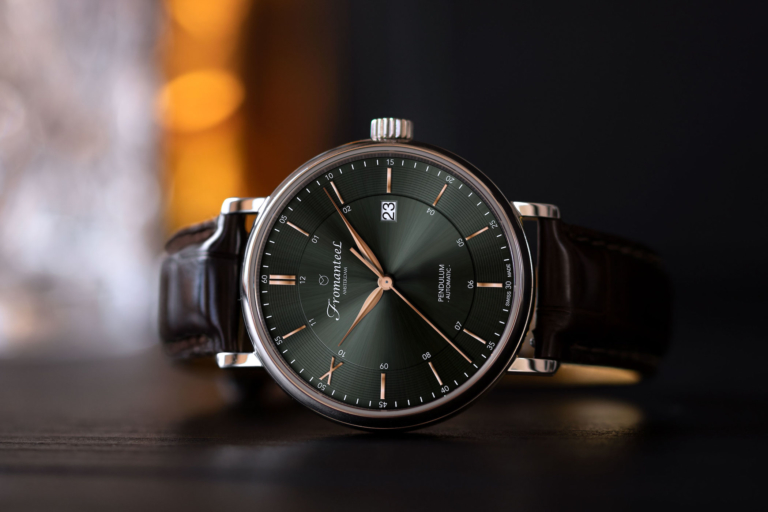
5 responses
Wow, fantastic pics!
Does anybody know if they will revise the perpetual datograph also within a reasonable time?
This is not known and usually brands will not share that kind of news before a new release.